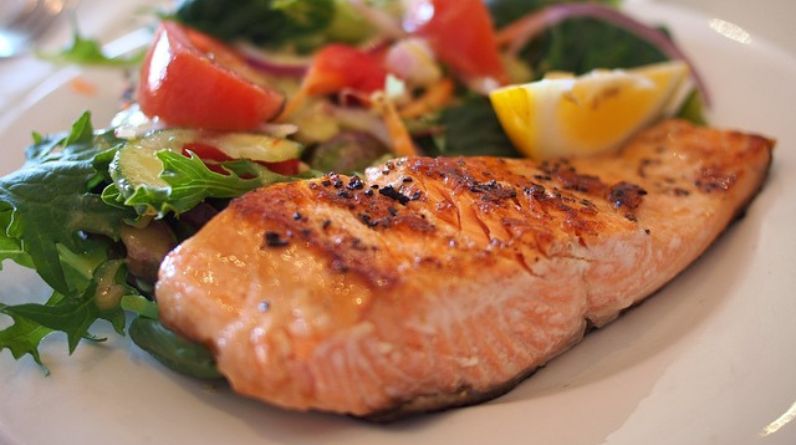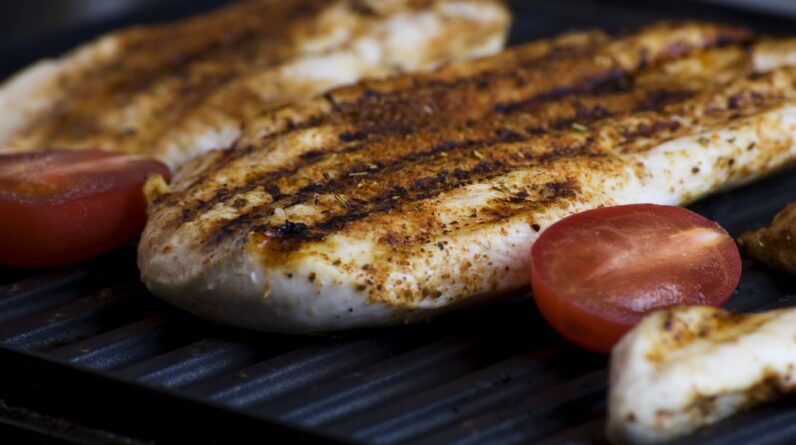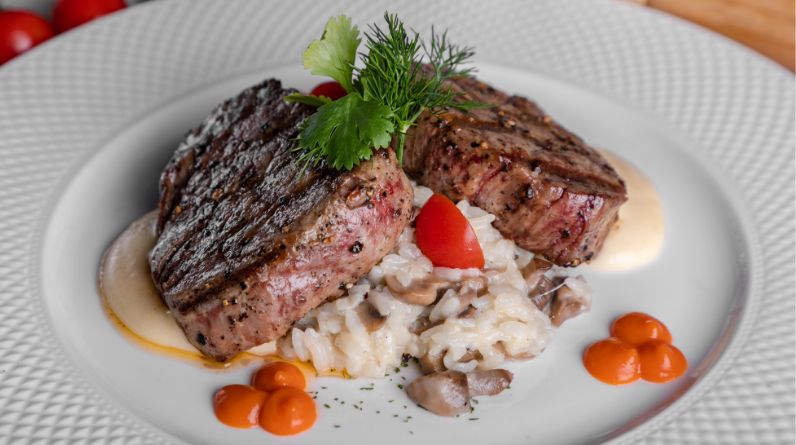
OPTIMIZING NUTRITION FOR PERFORMANCE
Meal planning is a critical component of a bodybuilder’s journey. Proper nutrition not only fuels your workouts but also supports muscle growth, recovery, and overall performance. By strategically planning and preparing your meals, you can optimize your nutrient intake, maintain consistency, and stay on track with your bodybuilding goals. In this article, we will explore the importance of meal planning for bodybuilders and provide practical tips to help you optimize your nutrition for peak performance.
The Benefits of Meal Planning
Consistency in Nutrition: Meal planning ensures that you consistently meet your nutritional requirements. By prepping and portioning your meals in advance, you have control over the quality and quantity of the nutrients you consume. This consistency supports muscle growth, recovery, and overall performance.
Time and Effort Efficiency: Planning your meals ahead of time saves you valuable time and effort. With a well-thought-out meal plan, you can streamline your grocery shopping, food preparation, and cooking process. This allows you to focus more on your training and other aspects of your bodybuilding journey.
Customization for Goals: Meal planning allows you to customize your nutrition based on your specific bodybuilding goals. Whether you’re aiming to build muscle, lose fat, or maintain your physique, you can tailor your meals to support your individual needs and optimize your results.
Optimal Nutrient Timing: With meal planning, you can strategically time your meals to support your training and recovery. Pre- and post-workout meals can be planned to provide the necessary energy, protein, and other nutrients at the right times, maximizing your performance and muscle growth.
Budget-Friendly Approach: Planning your meals in advance can help you make better choices and manage your budget effectively. By knowing exactly what you need and preparing meals at home, you can save money compared to eating out or relying on convenience foods.
Steps for Effective Meal Planning
Set Your Goals: Determine your bodybuilding goals, whether it’s building muscle, losing fat, or improving performance. Your goals will influence your macronutrient and calorie needs, which will guide your meal planning process.
Calculate Your Macronutrient Needs: Determine your daily macronutrient targets based on your goals, body weight, and activity level. Ensure you’re consuming the right amount of protein, carbohydrates, and fats to support your bodybuilding journey.
Create a Meal Schedule: Establish a meal schedule that works best for your lifestyle. Decide how many meals and snacks you’ll have per day and space them out according to your preferences and daily routine.
Choose Nutrient-Dense Foods: Focus on nutrient-dense foods to meet your macronutrient and micronutrient needs. Include lean proteins, complex carbohydrates, healthy fats, and a variety of fruits and vegetables in your meal plan.
Plan for Pre- and Post-Workout Nutrition: Prioritize pre- and post-workout meals to fuel your workouts and optimize recovery. Ensure you have a combination of carbohydrates and protein before and after training sessions to support energy levels, muscle protein synthesis, and glycogen replenishment.
Prep and Portion Your Meals: Set aside time each week for meal prep. Cook and portion your meals in advance, making it easier to stay on track with your nutrition throughout the week. Use meal prep containers to keep your meals organized and ready to grab.
Include Snacks and Supplements: Incorporate snacks and supplements into your meal plan as needed. Choose healthy, convenient snacks that align with your goals and provide additional nutrients. Supplements can complement your nutrition, but they should not replace whole foods.
Stay Flexible and Adjust: While planning is essential, it’s important to stay flexible and adapt as needed. Listen to your body, monitor your progress, and make adjustments to your meal plan when necessary. Embrace experimentation to find what works best for you.
Conclusion
Meal planning is a critical component of a bodybuilder’s journey to optimize nutrition and enhance performance. By carefully designing and organizing meals, bodybuilders can ensure they fuel their bodies with the necessary nutrients to support muscle growth, repair, and overall athletic performance. A well-structured meal plan accounts for individual goals, training intensity, and specific macronutrient needs.
Throughout this article, we have explored the key principles of meal planning for bodybuilders, including the significance of macronutrients, the importance of timing, and the value of supplementation when needed. We have also delved into the various factors that influence meal planning, such as training goals, body composition, and metabolic rate.
By following a thoughtful meal plan, bodybuilders can optimize their nutrient intake, sustain energy levels during intense training sessions, and promote efficient recovery post-workout. Additionally, a well-balanced diet can enhance overall health, promote immunity, and reduce the risk of injury, ensuring a successful and sustainable bodybuilding journey.
It is essential to remember that each individual’s nutritional needs are unique, and finding the ideal meal plan may require some experimentation and adjustments. Consulting with a registered dietitian or nutrition expert can provide personalized guidance to tailor meal plans to specific goals and preferences.
In the world of bodybuilding, nutrition is undeniably a key determinant of success. Meal planning serves as a powerful tool, providing bodybuilders with the competitive edge needed to achieve their desired physique and reach peak performance levels. As they say, “Abs are made in the kitchen,” and with a well-crafted meal plan, bodybuilders can unlock their full potential, nourish their bodies effectively, and embark on a successful and fulfilling bodybuilding journey.
Frequently Asked Questions
1. Do I have to eat the same meals every day when meal planning? Can I include my favorite foods in my meal plan as a bodybuilder?
No, you don’t have to eat the same meals every day. Meal planning allows for variety and flexibility. Plan a variety of meals and rotate them throughout the week to keep your nutrition interesting and enjoyable. It’s possible to include your favorite foods in your meal plan as long as they fit within your overall nutritional goals. Moderation is key. It’s important to strike a balance between nutrient-dense foods that support your bodybuilding goals and occasional indulgences that satisfy your cravings. Flexible dieting approaches, such as tracking macros, can help incorporate favorite foods while still meeting your nutritional needs.
2. Is it necessary to count calories and track every macro when meal planning?
While tracking calories and macronutrients can be helpful for some individuals, it’s not necessary for everyone. If tracking feels overwhelming, focus on portion control, food quality, and balanced meals. If you’re not seeing the desired results, you may consider tracking to fine-tune your nutrition.
3. How long may prepared food be kept in the freezer or refrigerator?
Meals that have been prepared can normally be kept in the fridge for 3–4 days. Freezing is a method of extending its shelf life. Proper storage containers and packaging can help maintain the quality and freshness of your meals.
4. What if I have a busy schedule and can’t do extensive meal prep?
If you have a busy schedule, you can still incorporate meal planning by focusing on simple and quick recipes. Opt for meal ideas that require minimal cooking and prep time, such as sheet pan meals, one-pot recipes, or batch cooking large quantities of ingredients that can be mixed and matched throughout the week.
5. Can I still enjoy dining out while following a meal plan?
Yes, you can still enjoy dining out while following a meal plan. Research restaurants in advance, look for healthier options on the menu, and practice portion control. You can also plan your meals around your dining out occasions to balance your nutrition.
6. How important is meal planning for bodybuilders?
Meal planning is highly important for bodybuilders as it allows for consistent and strategic nutrient intake to support performance, muscle growth, and recovery. It helps ensure you meet your macronutrient and calorie needs while providing the necessary vitamins, minerals, and other nutrients essential for optimal health and fitness.
7. What should a balanced meal for a bodybuilder consist of?
A balanced meal for a bodybuilder should include a good source of lean protein (such as chicken, fish, tofu, or legumes), complex carbohydrates (such as whole grains, sweet potatoes, or quinoa), and healthy fats (such as avocados, nuts, or olive oil). Incorporating a variety of colorful vegetables and fruits also provides essential vitamins, minerals, and antioxidants.
8. How often should I eat throughout the day as a bodybuilder?
It’s generally recommended to eat every 3-4 hours to maintain a steady supply of nutrients for muscle growth and recovery. This translates to around 5-6 meals or snacks per day. However, the frequency of meals can vary depending on individual preferences and schedules. Experiment and find an eating pattern that works best for you and supports your energy levels and training performance.
9. Should I include pre- and post-workout meals in my meal plan?
Yes, pre- and post-workout meals are essential for fueling workouts and promoting optimal recovery. A pre-workout meal or snack should consist of easily digestible carbohydrates and a moderate amount of protein to provide energy and prevent muscle breakdown. Post-workout nutrition should focus on replenishing glycogen stores and supporting muscle repair with a combination of carbohydrates and protein.
10. How can I ensure I’m getting enough nutrients in my meal plan?
To ensure you’re getting adequate nutrients, prioritize whole, nutrient-dense foods in your meal plan. Include a variety of fruits, vegetables, lean proteins, whole grains, and healthy fats. Consider tracking your food intake using a food diary or a mobile app to monitor your macronutrient and micronutrient intake. Having a conversation with a licensed dietitian or nutritionist can also be very helpful.
Remember, meal planning is a personal process that should align with your goals, preferences, and lifestyle. Tailor your meal plan to your individual needs, seek guidance from a registered dietitian or nutritionist if necessary, and listen to your body’s feedback to optimize your nutrition for enhanced performance and overall well-being.






